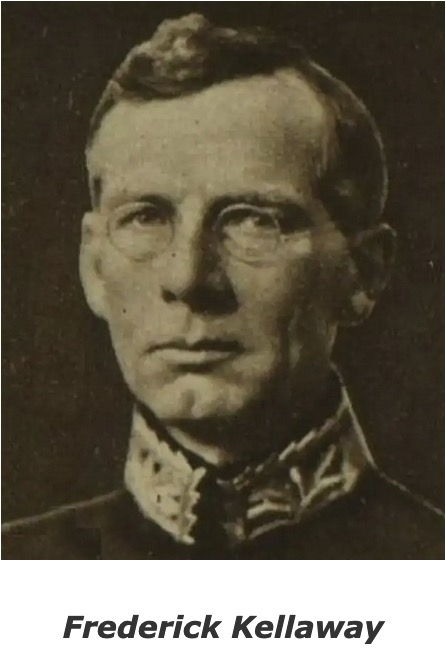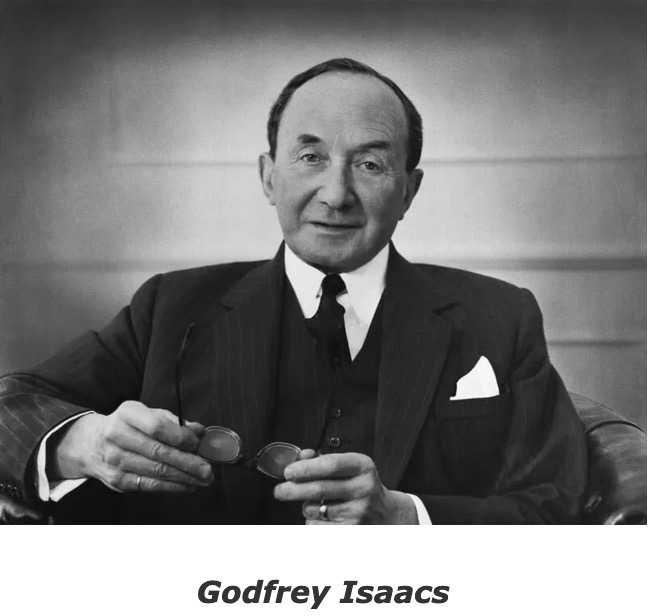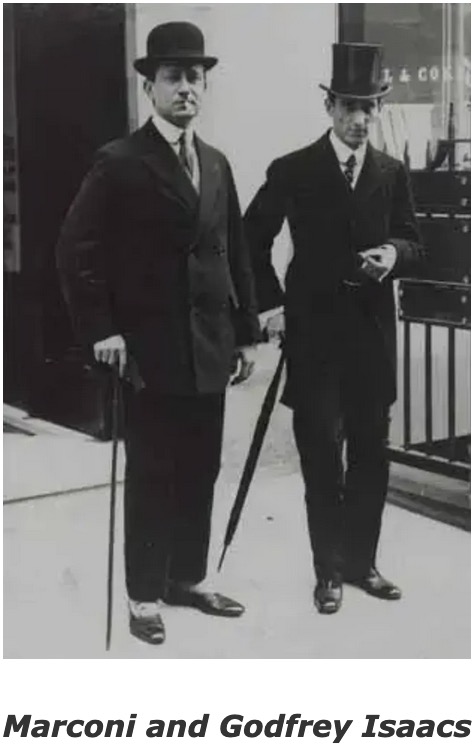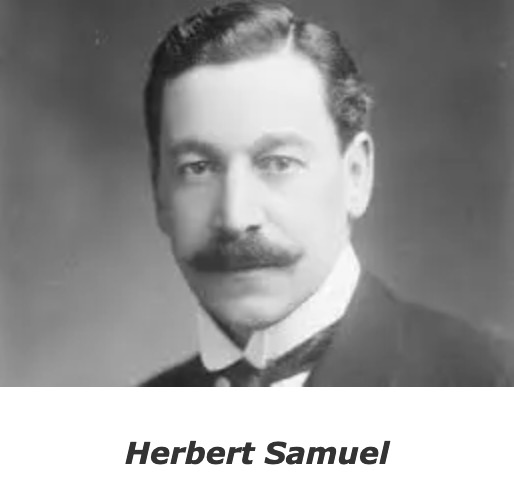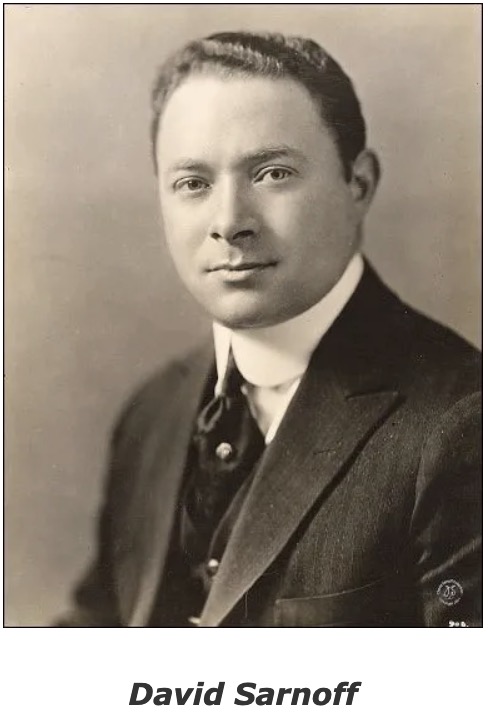This series of posts covering the topic of the unsavoury origins of the BBC is re-posted by kind permission of The Occidental Observer, where the original article can be found in full at this link. The fourth of four parts of this series covering the murky origins of the British Broadcasting Corporation (BBC).
Press and advertising ban
While the Post Office granted royalty rights, protection and licence enforcement to selected radio manufacturers, it also helped secure the revenue of the major newspapers. The BBC was prohibited from broadcasting “any news or information in the nature of news ‘except such as they may obtain from one or more of the following news agencies, viz.: Reuters Ltd, Press Association Ltd, Central News Ltd, Exchange Telegraph Company Ltd, or from any other news agency approved by the Postmaster General’.” 70 The intention was to ensure that the BBC could not make newspapers obsolete. The ban on advertising on the BBC worked to the same effect.
The BBC’s monopoly on broadcasting obviated the threat of commercial radio stations competing with the newspapers for advertising space. No wonder, then, that the Newspaper Proprietors’ Association under Harry Levy-Lawson, the first Viscount Burnham and owner of the Daily Telegraph, who sat on the Sykes Committee, “thought that newspapers had nothing to fear from broadcasting” and supported a single broadcasting authority. 71
The leading newspapers benefited from the existence of the BBC long after its formation. From 1929, commercial stations based in continental Europe began to gain the use of relay stations in Britain, a combination which “could break the BBC’s monopoly with the ordinary British listener”. As Briggs notes:
“Two conceptions of broadcasting… — public service broadcasting by a public corporation — the other, commercial broadcasting … were in danger of clashing … . In the conflict of conceptions the BBC had the full support of the press, which sent deputations on its own account to the Post Office to protest against foreign commercial broadcasts. It also agreed through the Newspaper Proprietors’ Association and the Newspaper Society that newspapers would not make use of foreign stations for advertising or publicity purposes.” 72
Thus, the BBC’s monopoly, granted by Parliament, was a pretext for the prohibition of commercial broadcasting which would have competed with the press for advertisers. The press, or at least the largest and most organised section thereof, lobbied to maintain it even as the BBC gradually eroded the founding restrictions on its own news operations. 73
Royalties
Reith’s advocacy for the BBC in its earliest and most commercial phase secured for the wireless cartel most of the profits available in broadcasting’s most rapid period of growth. These came from royalties on devices sold and a share of each licence fee paid. As McIntyre says, the BBC board “saw the royalty system as ‘the cardinal principle on which broadcasting was established’ ”, i.e., as “the bulwark that protected the manufacturers against competition from foreign sets and components”.
In June 1923, fortunate to deal with the new, sympathetic Postmaster-General, Reith secured an extension of the royalties and a higher share of revenue from each licence fee paid. The agreement with the Post Office caused the number of licences issued to rise from 180,000 at the start of October 1923 to 414,000 just ten days later and more than 1.1 million by the end of 1924. 74 In October 1923:
“Godfrey Isaacs, by far the toughest of the members of the Board, made a special telephone call to Reith congratulating him and telling him that he could not find adequate words to express his admiration. Reith was surprised, for Isaacs was usually ‘so undemonstrative’.” 75
As we have seen, the “main interest of the manufacturers was not in broadcasting” but rather in selling receiver sets. 76 Reith appears to have delivered receiver sales far beyond their expectations.
He also presented the BBC to Parliament and the public in a better light than they could have done themselves. Reith’s own interest, beside pleasing his directors, was increasingly in broadcasting as such, and he had, according to his own precepts, higher ambitions for it.
According to Briggs:
“In retrospect the company shell in which broadcasting was so successfully developed between 1922 and 1926 appears at best as temporary, something to be discarded when the organization grew and when the radio industry had ceased to have a compelling motive for continuing to sponsor broadcasting.” 77
That motive diminished as the increase of receiver sales passed its steepest phase. Reith’s ambitions grew, and by his own description he acted more and more on a “high conception of the inherent possibilities of the service”. 78
Beneficiaries
Until 2018, historians typically credited the founding of the BBC to that “high conception” and to Reith personally. 79 The role of Godfrey Isaacs was only partially known and was generally condoned. In light of the transcript of the May 1922 meeting, it became clear that Isaacs, primarily supported by Hirsch and armed with essential patents, effectively presented the market and the state with a choice between a manufacturers’ cartel and a continuing prohibition on broadcasting, a field in which other countries were rapidly advancing. Directors of Marconi and GEC then falsely asserted that the advantageous scheme had been pressed upon them by the Post Office.
In fact the Post Office under Frederick Kellaway acted as though it had been bought. Kellaway professed openness to multiple broadcasters in 1922 but assisted in fulfilling Isaacs’ demands. Before the meetings of the Big Six, Kellaway refused requests for permission from any other prospective broadcasters. At the meetings, though alternatives were discussed freely, Marconi’s control of essential patents predictably ensured that Isaacs’ scheme prevailed.
The best outcome for Marconi was one in which sales as a manufacturer were guaranteed; that is what Kellaway and Isaacs’ actions delivered as if by design. Within two months of leaving his post, Marconi rewarded Kellaway with a directorship; a month later he speciously attributed the creation of the cartel to his successor, Neville Chamberlain.
How fortunate it was for Kellaway and his new employer that his then-assistant F. J. Brown brought back from America just the right misinformation to forestall the emergence of ‘chaos’, i.e., an open market. Though the manufacturer’s cartel lasted only five years, and in its most lucrative form only for two, those were the plum years. 80 Marconi, GEC and the other founding companies appear to have had little complaint when the BBC became a ‘public corporation’ in 1927. 81 GEC went on to become one of the biggest companies in Britain and, under its managing director Arnold Weinstock, acquired Metropolitan-Vickers and British Thomson-Houston in 1967 and Marconi in 1968. 82
A diligent investigator of what could be called the second Marconi scandal would inspect afresh the affairs of one of the suspected would-be beneficiaries of the first, the Prime Minister, David Lloyd George. Kellaway’s proposals for prohibiting advertising and imposing a licence fee were initiated by Sir Henry Norman, Chairman of the Wireless Sub-Committee of the Imperial Communications Committee and an old ally of Lloyd George. 83 John Reith’s first appointment at the BBC, his secretary, was Miss F. I. Shields who had been recommended to him by Frances Stevenson, the secretary, lover and later second wife of David Lloyd George. 84 Recall that Reith met Lloyd George two months earlier between applying for the BBC job and his cursory interview.
The BBC’s relationship with the press through the 1920s was negotiated at a joint committee presided over by Lord Riddell, a long-standing friend and benefactor of Lloyd George; it was under Lloyd George’s premiership that Levy-Lawson had been made Viscount Burnham by the latter’s friend, King George V. 85 Levy-Lawson’s father Edward, the first Baron Burnham, had been a rare member of King Edward VII’s ‘Jewish court’ who continued in royal favour after the “cosmopolitan king’s” death. Baron Burnham’s father, Joseph Levy, owned the Daily Telegraph at the time of the 1881-82 riots in the Russian Empire; the paper echoed the alarmist reporting of the Jewish World and The Times, helping sway British public opinion in favour of accepting tens of thousands of Jewish ‘refugees’.
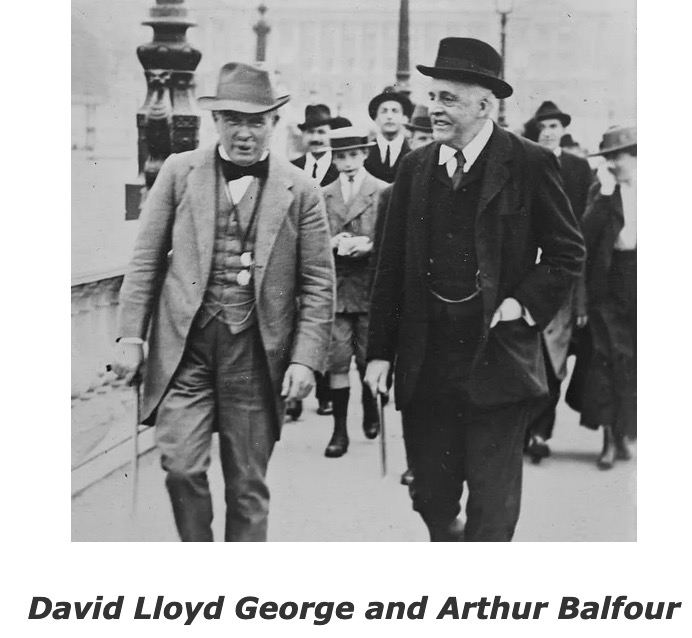
Lloyd George had much in common with his ally of several decades Winston Churchill, including wanton spending and personal dependence on favours and gifts. Like Churchill, Lloyd George was a friend and comrade of wealthy and powerful Jews, including the Isaacs brothers, Herbert Samuel, Chaim Weizmann and others, and like Churchill could generally be relied upon to side with Jews, especially Zionists, in all matters. He secured British control over Palestine at the Versailles conference in 1919. And in the following year, he appointed Herbert Samuel as the first High Commissioner of the British administration there.
Churchill became the Colonial Secretary in 1921, and in 1922 issued his famous white paper on Palestine calling for the greatest possible increase in the Jewish population. Churchill became more explicit in the 1930s about his intention to make Jews the majority. In 1923, Pinhas Rutenberg founded the Palestine Electric Corporation with Rufus Isaacs as a director; the Corporation was a joint venture between Rutenberg, the British state, the British element of the World Zionist Organisation, the aforementioned American General Electric and others. The senior Liberal peer Alfred Mond, the first Baron Melchett, later a founding member of the Focus along with Churchill and Lloyd George, was another director.
The BBC broadcast “a tribute on 11 April 1931 by Sir Herbert Samuel and Chaim Weizmann, who spoke at a dinner in honour of Lloyd George in recognition of his services to the ‘Jewish people’.” 86 Weizmann credited Lloyd George with co-initiating the Balfour Declaration. 87
Isaacs, Hirsch, Kellaway and Reith got what they wanted; Britain was saddled with a state broadcaster which, ever since, has worked to indoctrinate and discipline the public. The BBC today avows an anti-White ideology and pacifies the public in favour of foreign rapists of British children. It avoids the need for revenue from external advertisers (though it advertises favoured books gratis).
A century after the original agreement with the Post Office, the BBC is spared from having to satisfy customers, instead drawing upon the sordid racket referred to as the licence fee, which entails thousands of ordinary Britons being fined and imprisoned every year for their lack of “sportsmanship”. Still, its supporters can remind us of the corporation’s benevolence in sparing Britain from “the chaos of the ether”.
Footnotes
70 Coase, Origins, p204. Reuters had been founded by Paul Reuter (born Israel Josaphat) and came under the control of Roderick Jones; Jones’ acquisition was financed by Mark Napier and Starr Jameson, the latter being chairman of the British South Africa Company, an imperial company chartered by the British state and closely associated with the De Beers company and Cecil Rhodes, Alfred Beit, Nathan Rothschild and Ernest Oppenheimer.
71 Briggs, BBC, p48-9 and Coase, Origins, p58
72 The Golden Age of Wireless, Asa Briggs, 1965, p359. My emphasis.
73 Reith was able to liberate the BBC from its newscasting restrictions in stages over the 1920s and 30s. Briggs, Golden Age, p159. The BBC also created its own press: Radio Times became one of the best-selling publications in the country (nearly 3 million weekly sales in 1938) and it, World Radio and The Listener became very profitable for the BBC. Briggs, Golden Age, p281
74 Briggs, Birth, p192
75 Briggs, Birth, p199-200 and McIntyre, p129-30
76 Coase, Origins, p200
77 Briggs, Birth, p401
78 Briggs, Birth, p180-2
79 Reflecting on his early days at the BBC, Reith wrote in 1949 that:
“The trade had put me in office, [he wrote in his autobiography,] expected me to look out for them; there was a moral responsibility to them. But I had discerned something of the inestimable benefit which courageous and broad-visioned development of this new medium would yield. There lay one’s commission; and there need be no conflict of loyalties. Whatever was in the interests of broadcasting must eventually be in the interests of the wireless trade.” Briggs, Birth, p176
80 According to Briggs, broadcasting “was a curiously competitive industry, despite its continued pressure for protection.” Briggs, Birth, p196. It would be truer to say that broadcasting was curiously protected despite pressure for competition. The pressure for protection was from Marconi, GEC and their allies, precisely because the industry would otherwise have been competitive.
81 Marconi continued as a major supplier of microphones, recording equipment and other devices to the BBC throughout the 1920s and 1930s. Briggs, Golden Age, p97/100. Kellaway faithfully continued Marconi and Isaacs’ patent-centric approach: “[W]ith the demise of the Company some of the old issues of 1922 were re-emerging in the relations between the constituent companies which made up the BBC. At the meeting of 12 November Kellaway on behalf of the Marconi Company argued that the British Broadcasting Company was in no way obliged to transfer the use of its patent rights to the new Corporation. The question of patents remained troublesome and complicated long after the new Corporation was founded, although the Corporation itself escaped serious difficulties: it was fortunate that its sole concern was with broadcasting.” Briggs, Birth, p387. Unfortunately Briggs does not elaborate on the continuing patent question.
82 Metropolitan Vickers and British Thomson-Houston had merged in 1928.
83 Norman also sat on the Sykes Committee in 1923 along with Reith and Viscount Burnham. He wrote an article which “cleared the way for a small number of wireless manufacturers to be favoured over other potential applicants in the award of transmitter licences. He explicitly linked advertising, dismissed as ‘chatter’ about clothing, to interference in the United States. As for who would pay for broadcasting, ‘since the organization and cost – no trifling matter – will be with the commercial object of selling receiving apparatus, the answer is obvious’: the manufacturers.” Prosser, p10
84 McIntyre, p120. Frances Stevenson was the second wife of David Lloyd George both in the sense that he was in a relationship and had a separate home with her before his first wife died and that she became his wife in law after his first wife died.
85 Briggs, Golden Age, p154
86 “The BBC motto, Nation Shall Speak Peace Unto Nation, is… derived from an early Semitic language exhortation, from the Old Testament prophet, Isaiah, an Israelite [Isaiah 2:4].” Jews and the British Broadcasting Corporation (1922-1953), Michael Jolles, 2004.
87 Jewish Telegraphic Agency report, April 13th 1931.
For the previously posted parts of this study, click here for Part 1, click here for Part 2, and click here for Part 3.
Support independent scholarship. Subscribe to Horus.

